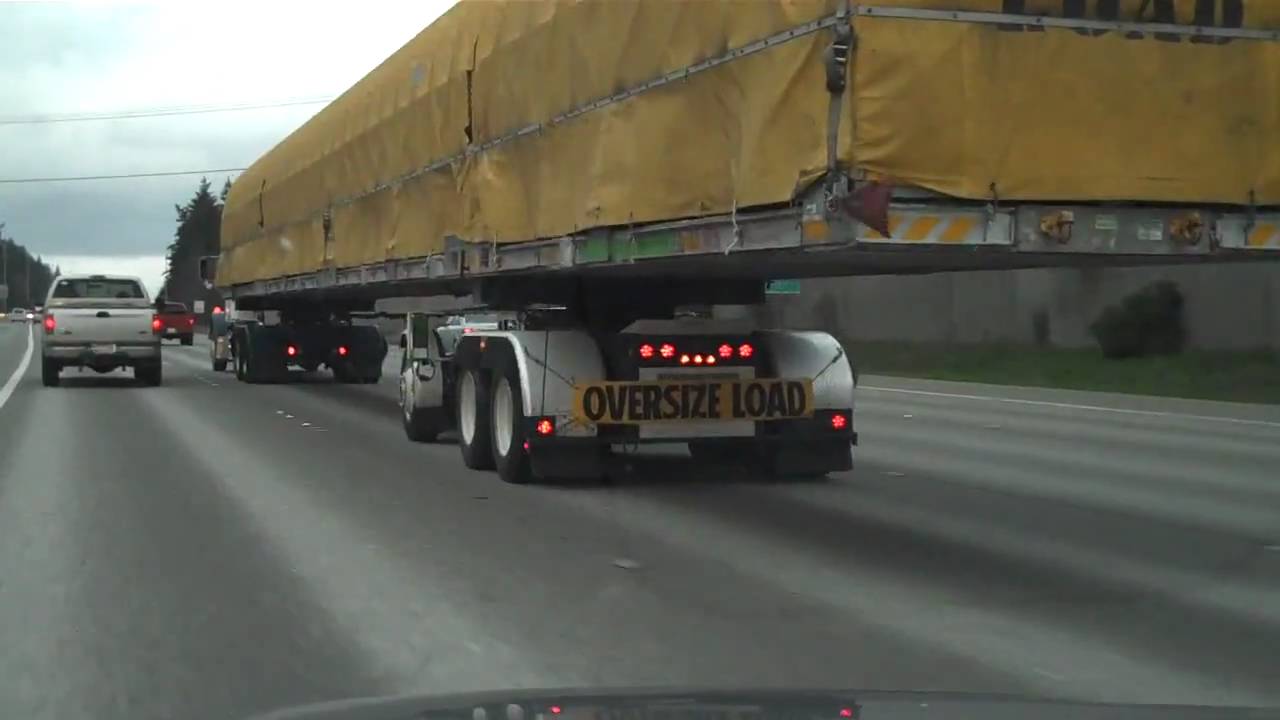There are understandable reasons why trucking companies can see advantages in bigger trucks. In real practical terms, this means longer trailers. Longer trailers mean that more goods can be carried by each truck, which should translate into higher productivity and greater profits. That makes sense, but what are the disadvantages? Are longer trailers inherently more dangerous? Would a change in the law permitting longer trailers on Tennessee highways, for instance, lead to higher social costs than the increase in profit for trucking companies justifies?
Like all these trade-offs, there is no easy answer. The push for longer trailers is now coming from the Americans for Modern Transportation Coalition (AMT). The AMT represents the international courier company, FedEx, and has advocated increasing the limits of tandem trucks from its present 28 feet to 33 feet. Tandem trucks are trucks that have two or more trailers joined together, usually only two.
Perhaps predictably, the AMT sees a lot of merit in increasing tandem length limits. It claims that an increase in tandem length will mean fewer trucks on the road. The AMT also claims that the longer trailers will mean that they will be more stable, which will mean better safety for all road users. It will also mean greater productivity and improvements in modernization nationally.
Whether the AMT’s arguments will typically hold is debatable. There are plenty of opposing viewpoints that argue the exact opposite with regards to safety, even if congestion is reduced and productivity raised.
More specifically, the following points have been brought up by highway safety professionals with regard to the safety reductions that would follow the introduction of longer trailers.
- longer trucks take longer to stop;
- heavier vehicles have a higher than average center of gravity, meaning they are inherently less stable in the event of a swerve.
- Longer vehicles are more likely to sway from side to side on a highway than shorter ones;
- Multi trailer trucks (tandem trucks) are more likely lead to more fatal crashes by a factor of 11% than trucks with single trailers.
It’s not just safety at stake
The AMT makes the reasonable point that longer trailers are more productive and therefore more profitable and will cause less congestion. Road transportation experts, however, say that this will be offset by increased stress on key roading infrastructure, especially bridges.
The US Department of Transportation (USDOT) made a report to Congress in 2016 which summarized their view of the disadvantages of longer and heavier tandem trailers. On the infrastructure costs, for instance, they estimated that a rise in weight limits to 91,000 pounds on the nation’s truck fleet would mean a weakening in strength of 5,000 bridges nationwide, which could amount to a bill of 1 billion dollars to fix. A 97,000 pound weight limit would damage 6,000 bridges nationwide with a corresponding 2 billion dollar bill to fix.
The USDOT’s 2016 report basically came out with a recommendation not to allow longer trailers. However, 2017 has arrived and these are changed times politically. Politicians have to weigh up the pros and cons of changes in trailer length before changing the law. Whether the economic argument or the social argument will win is anyone’s guess at the moment.
As far as the average Tennessee highway user is concerned the gains in trucking productivity may seem to be less important than just how it could affect their safety as they venture out on what are already congested, busy roads. Collisions with big trucks cause more fatalities and serious injuries than any other type of traffic accident. It would be fair to assume that there will be more serious injuries and more fatalities if Tennessee drivers have to contend with longer tandem tractor trailers.
Whatever happens will not change the right of injured road users to file a personal injury claim if they are injured in a collision with a truck in an accident that is not their fault. If this is what has happened to you or a loved one, anywhere in this state, contact one of our experienced truck accident attorneys at the Keith Williams Law Group office here in Nashville. You can contact an attorney at our office by ringing (615) 444-2900.


Leave A Comment